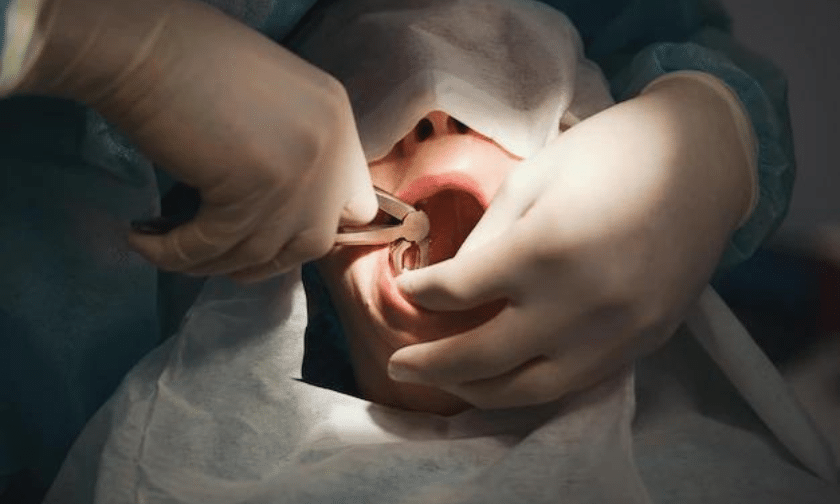
Like most people, you probably have many questions about wisdom teeth extraction. What is the procedure like? How long will it take to recover? Will it be painful?
At Tooth Ache, we understand that dental procedures can be daunting. That’s why we want to help put your mind at ease by debunking some common myths about wisdom teeth extraction. Read on to learn the facts about this popular oral surgery.
Wisdom teeth extraction is a standard procedure that helps prevent mouth overcrowding.
Wisdom teeth extraction is a process that involves the careful and precise removal of a person’s third set of molars. Many people find that these teeth can cause numerous problems if not removed – from overcrowding in the mouth to pain and discomfort due to their position or simply because they are coming through at an angle that is too sharp. Extracting wisdom teeth can help ensure that the mouth does not become overcrowded and provide relief from any pre-existing problems. It is essential for individuals who may be experiencing such issues with their wisdom teeth to get them checked out by a dental specialist who can offer the best advice and guidance regarding extraction.
There are a few myths about wisdom teeth removal that you should know before having the procedure done.
Many people have heard the horror stories about wisdom teeth removal and have been put off going ahead with the procedure. However, it’s essential to remember that these myths may not be accurate, and some of them have become outdated. One of the most common myths is that the process is excruciating; while some discomfort is involved, you will be given an anesthetic to keep you comfortable during the procedure. Another one claims that after removing your wisdom teeth, you’ll experience numbness down one side of the face due to nerve damage; fortunately, this is extremely rare and can be avoided if wisdom teeth extraction is done promptly. In short, any fears or anxieties you may have around getting your wisdom teeth removed are often unfounded, so don’t let them prevent you from discussing with your dentist whether it would benefit you in the long run.
One myth is that wisdom teeth removal is painful, but this is not necessarily true.
While wisdom teeth removal can be a stressful experience, it doesn’t have to be painful. Many worry about the pain associated with removing their wisdom teeth, mainly due to myths suggesting that it’s incredibly uncomfortable. But the reality is that advancements in dental technology have made wisdom teeth removal quite manageable for many individuals. Depending on your particular case, an experienced dentist could successfully perform the procedure under local anesthesia instead of general anesthesia, where you would remain completely unconscious for the surgery. As with any dental work, proper preparation and post-operative care are essential to help ensure an easy recovery. As long as these steps are taken, wisdom tooth extraction should not cause more discomfort than oral surgery.
Another myth is that wisdom teeth removal is unnecessary, but if your wisdom teeth are causing problems, they may need to be removed.
Contrary to popular belief, wisdom teeth removal does have a purpose beyond just cosmetic. If your wisdom teeth cause pain or interfere with the alignment of your remaining teeth, it’s best to get them removed. This is especially true if you evenly distribute the use of both sides of your mouth for chewing and speech. Otherwise, your wisdom teeth can shift other teeth out of alignment, leading to further complications and issues in the future. A professional dental assessment is the best way to decide if extraction is required. Your smile can remain healthy and beautiful for many years with appropriate treatment!
It’s essential to consult with your dentist or oral surgeon to see if wisdom teeth removal is proper for you.
Your wisdom teeth, also known as third molars, typically appear in your late teens or early adulthood. Many cases of impacted wisdom teeth require removal. To determine if this is the right decision for you, it is essential to consult with a dental professional such as a dentist or an oral surgeon. They will evaluate the condition of your wisdom teeth and assess whether they are healthy and functioning correctly. If Oral surgery is considered necessary, they will discuss the options available to you in detail so that you can make an informed choice on which option best serves your individual needs. Don’t wait until complications present; visit your oral specialist and discuss the best course.
There are a few things to remember if you’re considering wisdom teeth removal. First, you must consult your dentist or oral surgeon to see if the procedure is correct for you. If you have your wisdom teeth removed, you can do a few things to help speed up the healing process, such as eating soft foods and avoiding straws.
